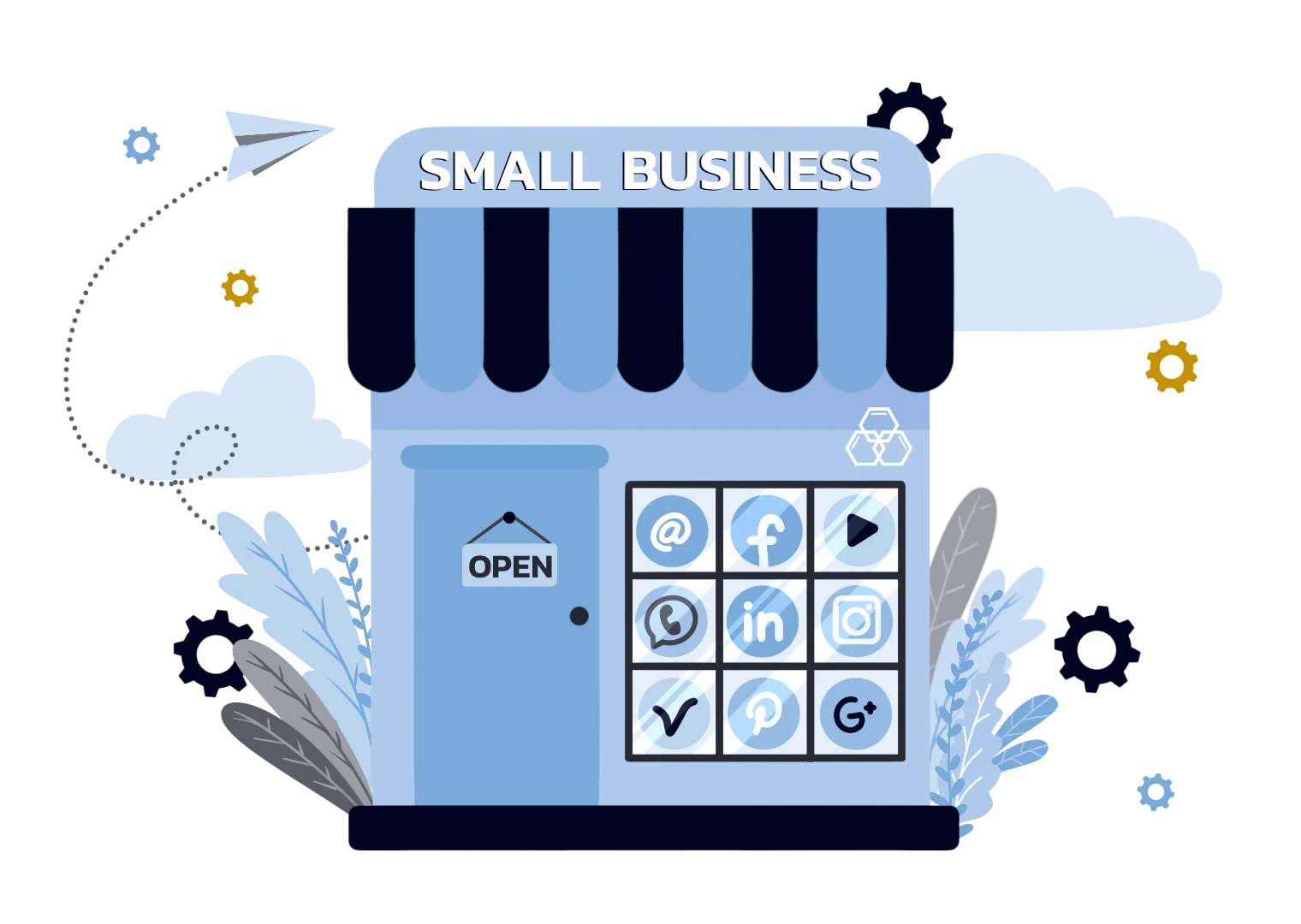Nowadays, brands need a powerful tool to navigate the online world and connect with their audience: a strategic content plan.
Simply having a website isn’t enough anymore. Consumers actively seek out information and engage with brands online. High-quality, informative content is the key to establishing a strong online presence and building brand loyalty.
So how can we do it?
What is Digital Content Strategy?
Digital content strategy applies the core principles of content strategy specifically to the online landscape. It is part of a larger content marketing strategy for a brand and it uses websites, social media platforms, videos, and other digital channels to engage your audience.
Think of it as the roadmap for your brand's online presence. It outlines what kind of content you'll create, who you're creating it for, and how it ties back to your larger digital marketing goals. Establishing a effective digital content strategy allows you to navigate the ever-changing online world and build meaningful connections with your audience.
Benefits of a Strong Digital Content Strategy
Every marketer will tell you strong digital content strategies are important, but what exactly makes it so?
1. Boosts Brand Awareness

High-quality content attracts new audiences and establishes your brand as a thought leader. You become a trusted resource by consistently creating informative, engaging content that addresses your target audience's needs and interests.
When potential customers search for solutions online, informative blog posts, insightful articles, or helpful videos created by your brand appearing at the top of their search results can significantly boost brand awareness. This positions you as an authority in your industry and builds trust, making them more likely to consider your brand when purchasing.

2. Generates Leads and Drives Sales
Compelling content goes beyond simply educating potential customers about your products or services. It strategically incorporates calls to action (CTAs) that nudge them toward a desired action. These CTAs, embedded within informative blog posts or captivating social media content, can be anything from downloading a free trial to visiting a product page.

3. Improves Search Engine Optimization (SEO):
Content rich with relevant keywords is the key to unlocking the power of SEO. Search engines prioritize websites that offer valuable and informative content. A strong content strategy helps you create content that incorporates relevant keywords naturally, improving your website's ranking on search engine results pages (SERPs).
The higher your ranking, the more likely potential customers will stumble upon your brand when searching online. Informative blog posts optimized for relevant industry keywords can significantly increase website traffic, attract qualified leads, and drive sales.

4. Builds Brand Loyalty and Trust:

Valuable content is the foundation for building trust and fostering brand loyalty. By consistently delivering informative and engaging content that addresses your audience's pain points and offers solutions, you position yourself as a reliable source.
Consider a company in the fitness industry that publishes helpful guides on workout routines and healthy recipes. This establishes them as a trusted resource for potential customers seeking to improve their health. Customers are likelier to choose this brand for fitness products or services because they perceive them as knowledgeable and reliable.
5. Increases Engagement and Community Building:

Effective content sparks conversations and encourages interaction. A strong digital content strategy goes beyond one-way communication. It's about creating content that resonates with your audience and ignites conversation.
You can foster community around your brand by incorporating interactive elements like polls, quizzes, or Q&A sessions. Consider social media posts encouraging user-generated content or blog articles that spark discussions in the comments section. This increased engagement strengthens customer relationships and creates advocates who organically spread the word about your brand.
Components of a Winning Digital Content Strategy
Here are the essential components that will serve as the building blocks for your online presence:
Define Your Business Goals
The foundation of any strong strategy is a clear understanding of your objectives. What do you hope to achieve with your content? Is it brand awareness, lead generation, increased website traffic, or driving sales?
Think of it like building a house. You wouldn't start construction without a blueprint, and your content goals are your blueprint. Clearly defined goals will guide your content creation process and ensure all your efforts are aligned toward achieving measurable results. For example, suppose your primary goal is to generate leads. In that case, your content strategy might focus on creating informative blog posts with strategically placed CTAs (calls to action) that encourage users to download whitepapers or subscribe to your newsletter.

Know Your Audience
Understanding your target audience is paramount. Ask yourself questions like;
- Who are you creating content for?
- What are their needs, interests, and pain points?
Conduct market research, analyze customer demographics, and develop buyer personas to understand your audience deeply.
This will help you tailor your content ideas that resonate with them and provide solutions that truly matter. For instance, if your target audience is young professionals looking for career advice, your content strategy might include blog posts with tips on resume writing or interview skills.

Content Audit and Competitive Analysis
Before diving headfirst into content creation, take stock of your digital landscape.
Conduct a content audit to evaluate existing content and key performance indicators like traffic and engagement, so that you can identify any gaps or areas for improvement. Additionally, analyze your competitor's content strategy. What are they doing well? What are their weaknesses? Use these insights to differentiate yourself and create content that stands out.
For example, a content audit might reveal that your blog posts are outdated or not optimized for search engines. Analyzing competitor content might show that they are creating a lot of video content, but the quality is lacking. Use these insights to inform your content strategy and create high-quality, informative videos that address your audience's needs.
Develop a Content Calendar
Consistency is key in the digital world. A well-defined content calendar makes publishing content organized and easy to track.
Map out your content topics in advance, assign deadlines, and determine the best channels for each piece. This ensures a steady stream of fresh content and helps you maintain audience engagement.
For example, your content calendar might include a blog post scheduled to be published every Monday, a social media post going out three times a week, and a monthly email newsletter. This organized approach allows you to plan your content creation and ensures a consistent flow of content for your audience.
Variety is Key
Explore a variety of content types like blog posts, infographics, videos, podcasts, social media content, and webinars to cater to different learning styles and preferences. But this doesn't mean you must create every type of content under the sun. Focus on the formats that best suit your brand and audience.
For example, if you are a B2B (business-to-business) company targeting professionals, you might focus on creating informative whitepapers and webinars. If you are a B2C (business-to-consumer) company targeting a younger demographic, you might focus on creating engaging social media content and short explainer videos.
Challenges of Building a Digital Content Strategy in 2024
The digital landscape is dynamic, and crafting a thriving content strategy requires constant adaptation. Here are some key challenges you might face in building a digital content strategy for 2024, along with some tips to navigate them:
1. Ever-Evolving Audience Preferences:

Consumer attention spans are shorter than ever, and content needs to be even more engaging and impactful to cut through the noise. New trends and platforms emerge constantly, requiring you to stay on top of audience preferences and adapt your content marketing strategy accordingly.
Actively research and analyze audience behavior. Utilize social listening tools to track trending topics and conversations relevant to your brand. Don't be afraid to experiment with different formats, such as short-form videos, interactive content, or live streams, to see what resonates with your audience.
2. Content Saturation and Information Overload:
The internet is flooded with content, and standing out from the crowd is a constant battle. You need to create high-quality, informative, and valuable content that solves your audience's problems and offers a unique perspective.
Don't try to be everything to everyone. Identify your brand's unique voice and expertise. Focus on creating content that addresses specific pain points or offers valuable insights within your industry.
Leverage analytics tools to understand what content performs well and what resonates with your audience. Use these insights to refine your content strategy and tailor content to specific audience segments.

3. Keeping Up with Algorithm Changes
Staying informed about these changes and optimizing your content accordingly is crucial to ensure your content reaches the right audience.
Be updated on the latest SEO best practices and social media algorithm changes. Incorporate relevant keywords throughout your content, but prioritize creating naturally informative and engaging content, not just keyword-stuffed. Don't rely solely on social media or search engines to reach your audience. Explore email marketing, influencer partnerships, or guest blogging opportunities to expand your reach.
4. Data Privacy Concerns and Regulations
Data privacy regulations are becoming stricter, making collecting and utilizing audience data responsibly essential. Developing a transparent data strategy and prioritizing user privacy is key to building trust with your audience.
Communicate how you collect and use audience data in your privacy policy. Prioritize collecting data directly from your audience through opt-in forms and website interactions. This data is more reliable and compliant with privacy regulations. Demonstrate your commitment to user privacy through clear communication and responsible data practices. This will foster trust and long-term relationships with your audience.
5. The Rise of AI-Generated Content

AI-powered content creation tools are becoming increasingly sophisticated. While these tools can be helpful for certain tasks like generating basic content outlines or summarizing data, over-reliance on AI can lead to generic, impersonal content that fails to resonate with audiences. The human touch and strategic direction remain crucial for creating content that truly connects.
AI can be a valuable tool but can never replace human creativity and strategic thinking. Use AI to streamline tasks, but prioritize human expertise for crafting compelling narratives and injecting your brand's unique voice. Don't rely solely on AI-generated content. Always have a human review of the content to ensure quality, accuracy, and brand alignment.
Final Thoughts
Remember, the challenges in making a successful digital content strategy are inevitable, but with the right approach, you can overcome them. Stay curious, embrace experimentation, and prioritize quality above all else.
Let us know how Evolv can help you with your digital content strategy.
You can also check out our blog and be updated with the latest insights and trends about digital branding and marketing.







